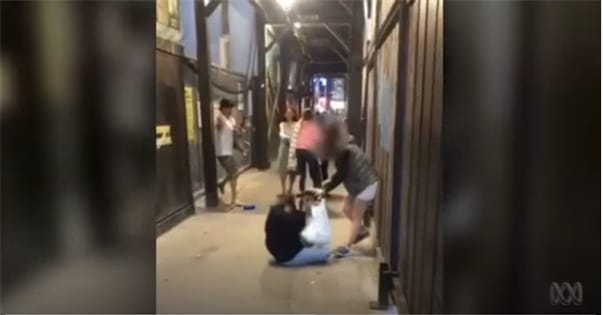BY SYLVIA SONG
Studying abroad is an enjoyable yet sometimes challenging experience for international students, and the current COVID-19 pandemic is not making it any easier.
While many international students have faced job losses and the inability to return to their home countries, some are now becoming victims of racial attacks due to their nationality.
With the COVID-19 curve flattening in Melbourne and social distancing restrictions slowly being lifted, parents of Chinese international students continue to worry about the safety of their children studying in Australia.
Yanbin Lee, a mother of a Chinese international student who is currently studying at University of Melbourne, said having her child overseas is difficult to get used to, but it’s much harder during the pandemic.
“The reason that I want my kid to study abroad is not only because overseas education is likely to be more advanced, but also because I want my kid to have a broader understanding of the world and an international study experience could give him different ways of looking at things,” Ms Lee said.
“I have paid high tuition fees to support my child to study abroad. In the wake of the racial attacks, I keep questioning my decision of sending him to study abroad,” she said.
A month ago, two University of Melbourne students were assaulted in what was labelled an ‘unprovoked racist attack’, when it was reported by 7 News.
A video of the attack showed two Asian students being assaulted, after their attackers mistook them for being Chinese. The victims were from Singapore and Malaysia.
The two young Australian female attackers can be heard yelling ’corona virus’ repeatedly at the two students, before telling them to get out of the country while attacking them, as can be heard in a video uploaded by ABC.

A statement released by the Chinese Embassy in Australia strongly condemned the attacks and reminded Chinese citizens to stay strong.
“In the fight against COVID-19, people should help each other regardless of race, nationality, occupation, culture. Any discriminatory words and deeds are contrary to the human conscience and cannot match the multicultural society in Australia,” the statement read.
Australian Prime Minister Scott Morrison also condemned the act and those who were targeting Chinese-Australians.
“Stop it. That's my message. And I think that is the message of every Australian," Mr Morrison said when he addressed the media a few days after the incident.
University of Melbourne Vice-Chancellor Duncan Maskell issued a statement, labelling the attack a ‘disgrace’ and assured the university was providing support to the victims.
“This is a disgusting and unprovoked attack on two of our female students. There is no place for violence in a modern, future-facing society like Australia,” Mr Maskell said.
“These senseless and vicious attacks on two young women must never be tolerated in our community. The people who did this are a disgrace.”
Further racial attacks included a South Melbourne Bubble-Tea shop employee being verbally abused; an Asian family’s home in Knoxfield was vandalised; and a woman was spat on in Sydney.
Jack Chen, a parent of a Chinese international student studying at Monash University, said amidst the crisis the fear of discrimination is an added burden.
“When I heard of the racial attacks because of the virus I called my daughter, hoping she would come back home,” Mr Chen said.
“Annoyingly, it is not safe for her to take the flight back to China either. I am also concerned about her safety during the trip back home, putting me in a tough situation,” he said.
Ms Lee was shocked when she heard of the cruelty of the attackers, and suggested all sections of society should take measures to reduce the fear that international students face in situations like this.
“I think this attack will make the international students stand together against racial discrimination and make the community more cohesive,” Ms Lee said.
“It is necessary to avoid hostility in society at all times, creating a good learning environment,” she said.